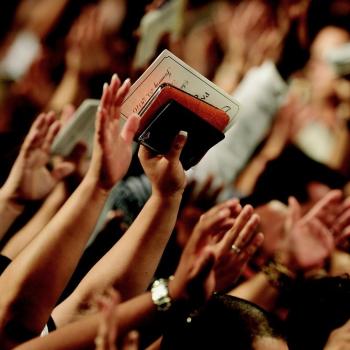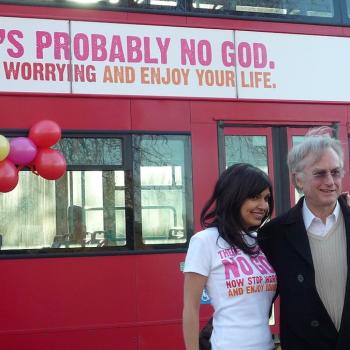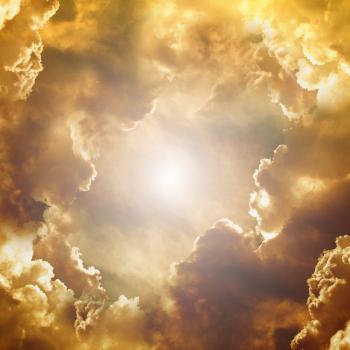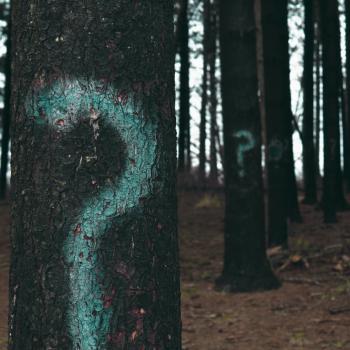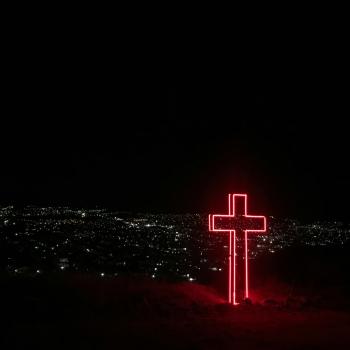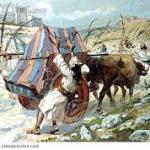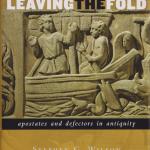
The people of Judah drifted far from God and into idolatry. How did they get there? The same way we do – one step at a time.
Scripture:
2 Kings, chapter 23; 2 Chronicles, chapter 35; John, chapter 7
2 Kings 23:4-9 (CEB):
The king then commanded the high priest, Hilkiah, the second-order priests, and the doorkeepers to remove from the Lord’s temple all the religious objects made for Baal, Asherah, and all the heavenly bodies. The king burned them outside Jerusalem in the Kidron fields and took the ashes to Bethel.
He got rid of the pagan priests that the Judean kings had appointed to burn incense at the shrines in Judah’s cities and the areas around Jerusalem. He did the same to those who burned incense to Baal, to the sun, to the moon, to the constellations, and to all the heavenly bodies. He removed the Asherah image from the Lord’s temple, taking it to the Kidron Valley outside Jerusalem. There he burned it, ground it to dust, and threw the dust on the public graveyard. The king tore down the shrines for the consecrated workers that were in the Lord’s temple, where women made woven coverings for Asherah.
Then Josiah brought all the priests out of Judah’s cities. From Geba to Beer-sheba, he defiled the shrines where the priests had been burning incense. He also tore down the shrines at the gates at the entrance to the gate of Joshua the city’s governor, which were on the left as one entered the city gate. Although the priests of these shrines didn’t go up on the Lord’s altar in Jerusalem, they did eat unleavened bread with their fellow priests.
Observations – One Step at a Time
I wonder how much this passage catches our attention when we read it. I know that I have tended to focus on what Josiah did – tearing down idols, destroying shrines, etc. Although Josiah’s obedience was commendable, the question remains: how in the world did God’s people ever get to that point? Look at the list of things that Josiah had to address:
- Religious objects made for Baal, Asherah, and all the heavenly bodies in the temple (v 4)
- Pagan priests burning incense at shrines in Judah’s cities (v 5)
- Pagan priests burning incense to Baal, the sun, the moon, the constellations, and all the heavenly bodies (v 5)
- An Asherah image in the Lord’s temple (v 6)
- Shrines for “consecrated workers” [i.e., cultic prostitutes] in the Lord’s temple (v 7)
- Priests who burned incense at pagan shrines eating consecrated bread (v 9)
- Child sacrifice in the valley of Ben-hinnom (v 10)
- Horses dedicated to the sun kept by the kings of Judah (v 11)
- Altars to pagan gods build by Ahaz and Manasseh (v 12)
- Shrines to Ashtoreth, Chemosh, and Milcom, the gods of the surrounding nations (v 13)
- Sacred pillars and sacred poles to pagan gods (v 14)
- The altar in Bethel made by Jeroboam (v 15)
How in the world did they ever get to that point?
How Did They Get There?
They got there the same way people always get so far away from God – one step at a time. The Israelites didn’t build those things in an instant. First, they started worshiping the gods of the nations around them along with God. They still gave lip service to God. Second, they disobeyed the first commandment – no other gods before God. Eventually, one step at a time, they drifted further and further away from God.
“Josiah fulfilled the words of the Instruction written in the scroll that the priest Hilkiah found in the Lord’s temple. There’s never been a king like Josiah, whether before or after him, who turned to the Lord with all his heart, all his being, and all his strength, in agreement with everything in the Instruction from Moses” (2 Kings 23:24-25). Once Josiah understood what God required, he did everything “with all his heart.” Significantly, Josiah didn’t obey little by little; he destroyed everything that was displeasing to God. Although people may drift away one step at a time, we have to return to God with all our heart, all our being, and all our strength.
Application – One Step at a Time
There’s an old saying: when you realize that you’re in a hole, the first thing to do is put down the shovel. Josiah realized that Judah was “in a hole.” Consequently, he “put down the shovel” by getting rid of all of the symbols and instruments of idolatry. He didn’t say, “Well, first let’s clean up the temple. Then, maybe next year, we can take the next step.” Nope! Without delay, Josiah said: Get rid of all of it. He obeyed with all his heart, strength, and being.
Significantly, the longer we tolerate the presence of those habits, practices, and attitudes that we know are displeasing to God, the less likely we are to deal with them. God calls us to a complete surrender to him and his sovereignty. He undoubtedly will deal with the biggest issue first – spiritual triage, as it were. However, dealing with the biggest issue first doesn’t mean the other things are “okay” with God. There’s a lifetime of growth as he forms us in the image of Jesus. We don’t have to figure out how to deal with everything; God simply calls us to obey. “Not my will, but your will be done.” He makes us more like Jesus one step at a time.
Prayer:
Father, thank you for reminding us that you call us to return to you – to repent. That means that we acknowledge the things that are not pleasing to you, and we agree with you that they are wrong. As you speak to us each day, help us to surrender everything to your sovereignty. Apart from you, we’re in a hole – a hole that gets deeper every day. Help us to put down the shovel! When our hands are free, we can reach out to you – and you will lift us up.
Thank you for reminding us that the journey toward Christlikeness is the journey of a lifetime – indeed, a journey for eternity. But your word says that we shall be like him, for we shall see him as he is (1 John 3:2). Show us today what we need to do to take the next step in that journey, and help us to obey. Amen.




